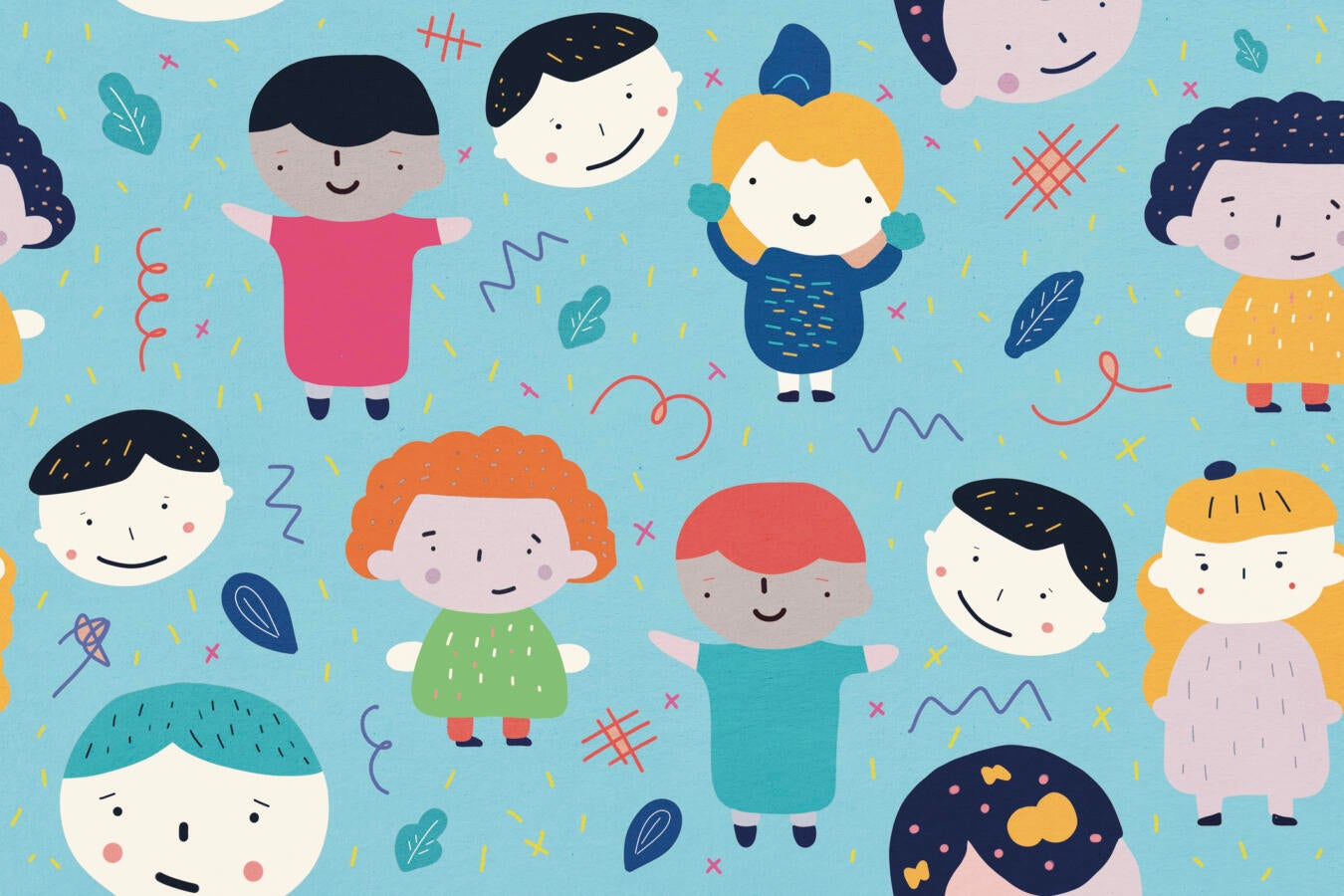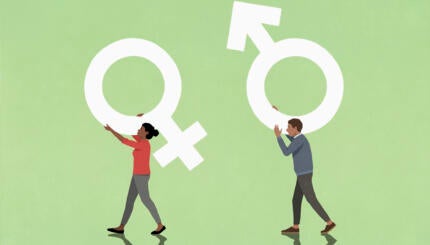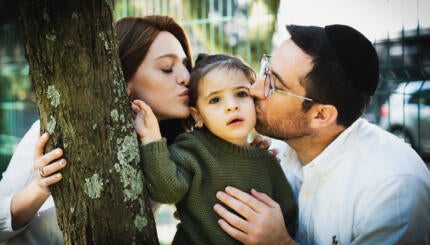The Hebrew words ben (בֵּן) and bat (בַּת) are usually translated as “son” and “daughter.” They mean this in the literal sense, but they are also frequently used to mean simply boy and girl.
The terms ben and bat are always used as part of a person’s Hebrew name. This ritual name is used when a person is called up to the Torah for an aliyah, when prayers are said for their recovery from illness, when they are married (it is written in the ketubah) or divorced (in the get), when they convert to Judaism and when they are recalled in the memorial Yizkor prayer. A ritual name consists of a person’s Hebrew name plus either the word ben or bat followed by either their father’s Hebrew name or their mother’s Hebrew name or both.
The word bat also appears in the term bat mitzvah, meaning “daughter of the commandment.” A girl becomes a bat mitzvah when she is of an age to be responsible for following the mitzvot, 12 or 13 depending on the Jewish community. When a boy reaches the age of responsibility — 13 in all Jewish communities — he is a bar mitzvah, a son of the commandment. The term “bar” is the Aramaic equivalent of ben.
With your help, My Jewish Learning can provide endless opportunities for learning, connection and discovery.
The terms ben and bat also appear in other descriptive contexts in Jewish tradition. For example, in traditional morning blessings, Jews thank God for making them either ben chorin or bat chorin, both of which means free person. The term ben adam, literally meaning “son of a person,” is used in the Hebrew Bible to simply mean “human” but in later rabbinic and modern usage came to mean someone who was particularly righteous.
The words ben and bat are also used in modern Hebrew to describe someone’s age. A woman who is 30 years old is called bat sheloshim, literally “daughter of 30.” Boys and men are similarly described — for instance, ben sheva is used for a boy who is seven years old. Another modern Hebrew use of the term is ben zug (“zug” means partner) and bat zug, referring to one’s spouse.
A particularly interesting use of the word bat is in the rabbinic term bat kol, literally meaning “daughter of a voice.” This refers to a disembodied, heavenly voice recognized to belong to God. The bat kol appears in many rabbinic stories to relate God’s message.
Keep the language learning going with our Hebrew Word of the Day emails! Sign up here for a daily knowledge boost and expand your Hebrew vocabulary.



